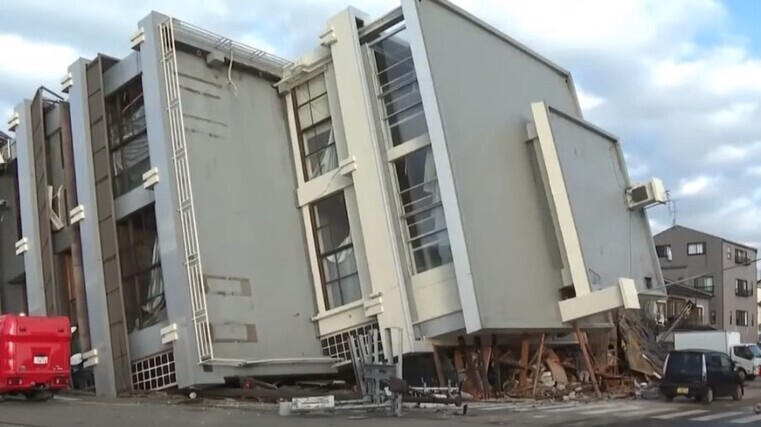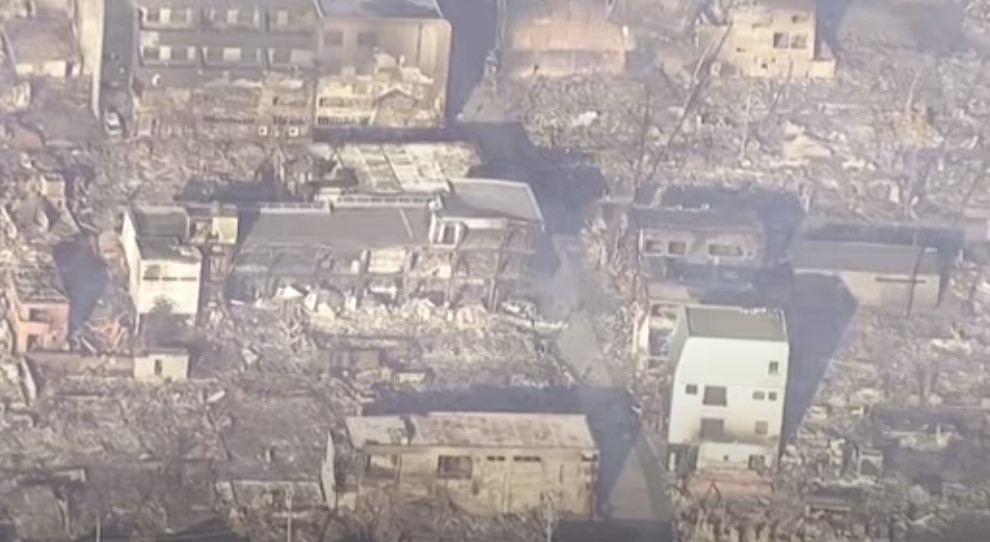Earthquake hits Japan

A powerful earthquake struck central Japan on new year’s day with at least 55 people dying.
In addition, tens of thousands of properties have been left without power with people in some coastal areas taking to higher ground.
The earthquake, with a preliminary magnitude of 7.6, triggered one-metre-high waves along Japan’s west coast and neighbouring South Korea.
The Japan Meteorological Agency initially issued a major tsunami warning – its first since the March 2011 earthquake that hit the country’s north-east killing nearly 20,000 people – for Ishikawa prefecture. This was later downgraded and eventually diminished to an advisory.
As at noon on January 3, authorities had confirmed 55 fatalities, all in Ishikawa prefecture. This tally makes it Japan’s deadliest earthquake since at least 2016 when a 7.3 magnitude one struck in Kumamoto on the country’s southern island killing more than 220.
Many of those killed on January 1 are in Wajima, a city on the remote northern tip of the Noto peninsula with scores more being injured.

Rescue teams have struggled to reach isolated areas where buildings have been toppled, roads wrecked and power cut to tens of thousands of homes, reports Reuters.
“The search and rescue of those impacted by the quake is a battle against time,” says Prime Minister Fumio Kishida.
The quake jolted buildings in Tokyo, about 500km from Wajima on the opposite coast.
The disaster comes at a sensitive time for Japan’s nuclear industry. It has faced fierce opposition from locals since the 2011 earthquake and tsunami, which triggered nuclear meltdowns in Fukushima and devastated whole towns.
Japan last week lifted an operational ban imposed on the world’s biggest nuclear plant, Kashiwazaki-Kariwa, which had been offline since 2011.
The Nuclear Regulation Authority says no irregularities were found at such plants along the Sea of Japan, including five active reactors at Kansai Electric Power’s Ohi and Takahama plants in Fukui prefecture.






